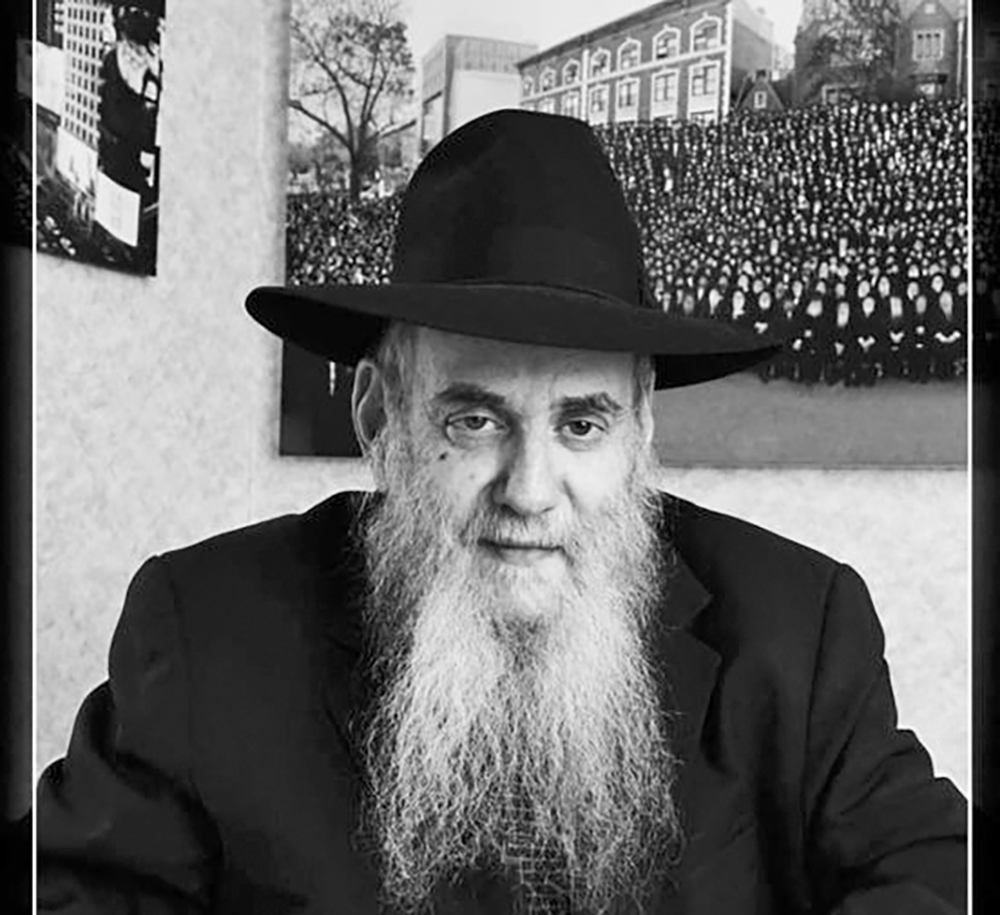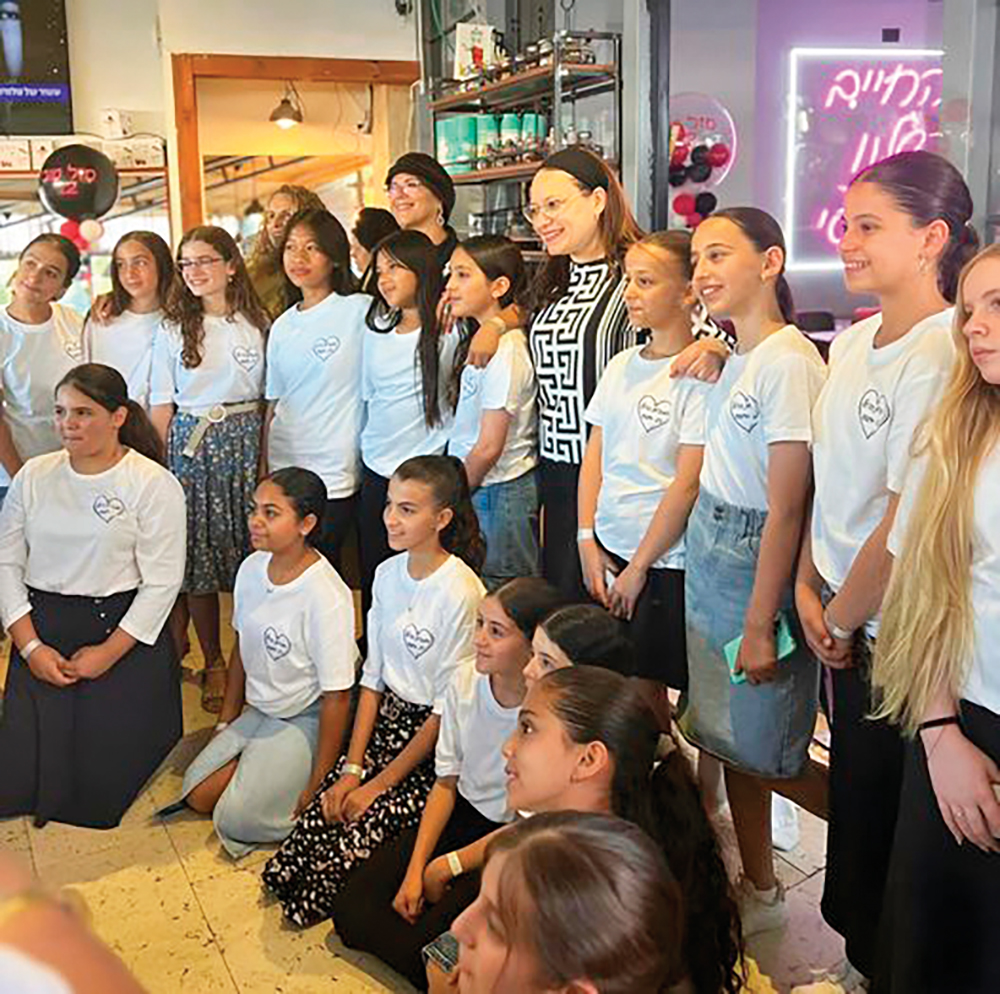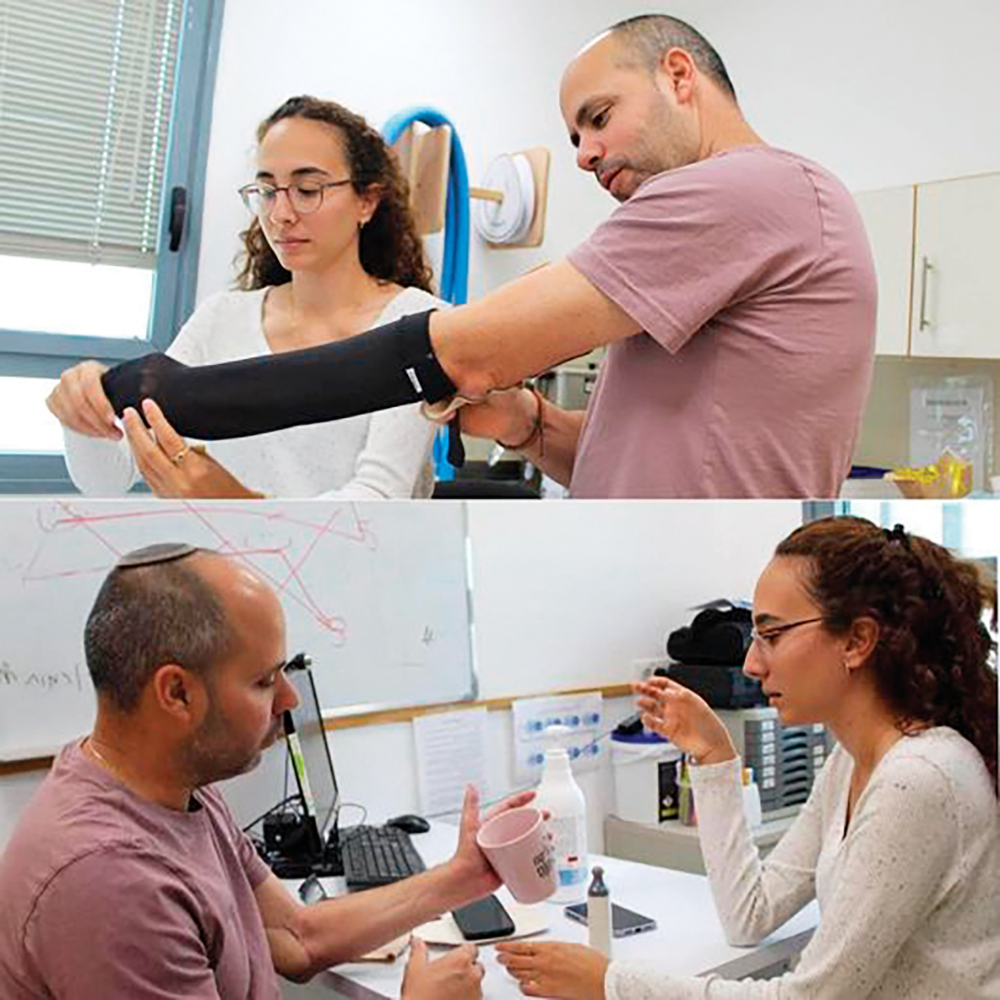
Remembering Rabbi Moshe Kotlarsky, z”l
Rabbi Moshe Kotlarsky, a towering figure in the Jewish world, passed away last Thursday at the age of 74, leaving behind an indelible legacy. His profound impact was felt by millions of Jews worldwide, many of whom may not even realize they were touched by his influence. Because all those who have benefited from a Chabad House over the past decades—millions of Jews—are indebted to Rabbi Kotlarsky.
As a guiding father figure to Chabad emissaries across the globe, Rabbi Kotlarsky’s home was in Brooklyn, but he lived most of the time on airplanes. He personally knew every emissary and many of their children, always finding time for even the smallest details while dreaming on a grand scale. His visionary leadership and impassioned speeches raised millions of dollars for Jewish education and aid for those in need.
Last winter, at a gathering of Chabad women in New York, I had the privilege of receiving his wise counsel. Witnessing his immense heart and sharp intellect up close, I saw a rare combination of relentless drive and profound sensitivity. Rabbi Kotlarsky was a force of nature, unstoppable in his pursuits and deeply compassionate—a true rarity.
Though countless stories and quotes could be used to pen elaborate eulogies, Rabbi Kotlarsky would have shunned such accolades. He saw himself as nothing more than a humble chassid of the Lubavitcher Rebbe.
At Chabad’s annual gatherings, all eyes and ears were on Rabbi Kotlarsky during the highly anticipated “roll call.” He would announce every location where Chabad emissaries, both new and established, served their Jewish communities. Each year, the list grew, adding new countries and flags. After he had made mention of every place on earth where a Chabad house could be found, he would declare: “A round of applause for the whole world!” and the entire assembly would erupt in joyous dance.
Despite years of health challenges, Rabbi Kotlarsky never slowed down, driven by the mission to bring Mashiach. Recently, his condition worsened. Just last Shabbat, I met a Chabad woman emissary from an American college campus in Jerusalem. She had gone to the Kotel to pray for him, envisioning a future where, at the height of the war, redemption would come, and the iconic “roll call” would be held at the Western Wall, uniting all Diaspora communities in Jerusalem.
Condolences to his wife, Rivka, whose home was always open to guests; to his son and successor, Rabbi Mendy; to his daughter, my dear friend Chani Volubick; to his large family and to all Chabad emissaries.
Condolences also to the vast number of Jews worldwide—from Ukrainian refugees to Jewish students in London, to Bar Mitzvah boys in Sderot and Australia—who may never know the depth of care and dedication Rabbi Kotlarsky had for each one of them. His legacy will continue to inspire and guide the Jewish world for generations to come.
The Ties That Bind Us
Bar Kuperstein, a paramedic, was working as a security guard at the Nova festival on Simchat Torah, when he was taken hostage. Julie, his mother, wrote me the following letter:
“Hi Sivan, while we await Bar’s safe return home, I was thinking that someone who does not have tefillin could use Bar’s set. With the help of Riki Siton, director of the Chavruta-Ayelet HaShachar organization, this idea was shared on social media. Within a day or two, 15 men who do not put on tefillin at present, but who want to, had accepted our offer. I just spoke with the individual who will be using Bar’s tefillin. He told me that he stopped putting on tefillin eight years ago but that he will start again, now.
“Our Bar has many merits. His father, also a paramedic, was confined to a wheelchair after being seriously injured in a car accident. Bar, our eldest son, took upon himself financial responsibility for the entire family. In fact, he took the job at the Nova festival in order to earn some extra money. Bar was captured after repeatedly engaging in life-saving acts of courage. And now many Jews have started putting on tefillin in the merit of Bar Avraham ben Julia.
“The initiative has been publicized, leading to large numbers of men expressing interest in putting on tefillin; therefore, we need donations of sets of tefillin to satisfy the growing demand.
“Meanwhile, we all anticipate the day when Bar’s tefillin will be returned to him, when he returns safely home.”
Brave Bat Mitzvah Girls
I had the privilege of meeting a very special group of courageous Bat Mitzvah girls from Kiryat Shmona, the city in northern Israel that has been evacuated for eight months now due to Hezbollah shelling from Lebanon.
Three hundred twenty children attend the Uziel school in Kiryat Shmona. Now these students are spread out among more than 100 schools in Israel, from Eilat to Gush Etzion to Haifa.

Last week, the sixth-grade girls met in Jerusalem to celebrate their Bat Mitzvahs. We spoke about the difficulties they face, and how much they miss their city. We told jokes about hotels and temporary housing. We saluted their incredible mothers, and I saw how much fun it was for them to meet up again with their principal and teachers whom they haven’t seen for a long time.
Most importantly, we spoke about Jewish girls their age over the generations: the 12-year-old girls who went into exile after the destruction of the Temple, from this very place, Jerusalem; and we asked ourselves what gave them the strength to carry on. We thought about the girls who experienced the Exodus from Egypt, the girls who came on Aliyah from Yemen and from Poland when Israel was still a wasteland, and those who lived in Israel in the 1950’s during the early years of the State. We thought about all the girls who became young women, and later, mothers, during the thousands of years of our nation’s history. And we discussed how life has always been a journey filled with uncertainty.
Despite all the chaos, I told them, they have been given the greatest gift possible, 613 precious gifts, actually – the mitzvot. These are not just ordinary presents. They provide stability, identity, an anchor, a sense of belonging and meaning.
Heroic Moments
On the morning of October 7th, Michael Gottesman, a dedicated member of the emergency security team in the Gaza border town of Shlomit, received an urgent call. Terrorist forces had infiltrated the nearby community of Pri Gan. Without hesitation, Michael rode swiftly to the scene, ready to defend his community.
For hours, Michael engaged in intense and grueling combat, until he was severely wounded in the hand. After receiving initial medical care, Michael was transferred to the day clinic at the ADI Negev-Nahalat Eran rehabilitation village. The injury had caused a significant loss of function in his hand, making everyday tasks like holding his cell phone or picking up his children nearly impossible.

Doron Almog, the founder of ADI, shared that Michael’s days were filled with rigorous occupational therapy, each session a step towards regaining his independence. Last week, during an occupational therapy session, Michael achieved a significant milestone. For the first time since his injury, he was able to raise a glass with his injured hand – the same hand that had neutralized Hamas terrorists. Before drinking, he recited the shehakol blessing, marking a moment of triumph and gratitude.
*Translated by Yehoshua Siskin, Janine Muller Sherr
Sivan Rahav Meir is a primetime news anchor on television and radio. She has a weekly podcast on Tablet, called “Sivan Says,” and has published several books In Hebrew and English. She lives in Jerusalem with her husband Yedidya and their five children.
Want to read more by Sivan Rahav Meir? Google The Daily Thought or visit sivanrahavmeir.com












